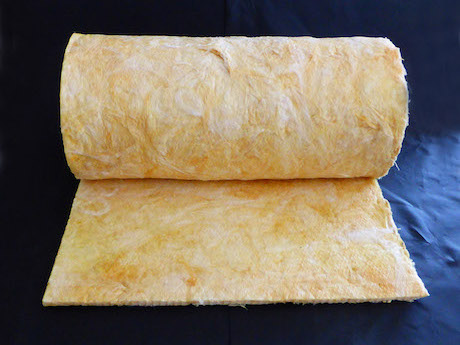
Yellow glass wool
Isolform purchases this glass wool in rolls, and
processes it by cutting it and bonding it to suitable materials.
Glass wool is industrially produced by melting a mix of glass
and sand at a temperature between 1,300 and 1,500 °C. This is
then transformed into fibres, and a special thermosetting resin
based binder is added, which increases the cohesion of the
fibres. The fibre is heated to about 200°C and calendered to
increase its mechanical resistance and stability. The glass wool
is then cut to make rolls or panels for action at high
pressures. |
|
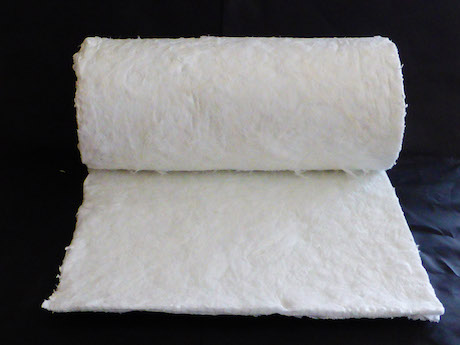
White glass wool
Isolform purchases this white glass wool in rolls,
and processes it by cutting it and bonding it to suitable
materials. This type of material is suitable for insulation
where significant temperature changes occur, and it can be used
with temperatures up to 400 °C. The production process is the
same as for the above glass wool, but in this case the material
is treated with a special phosphoric mineral binder, which
ensures compliance with the most stringent regulations on the
emission of formaldehyde. |
| |
|
|
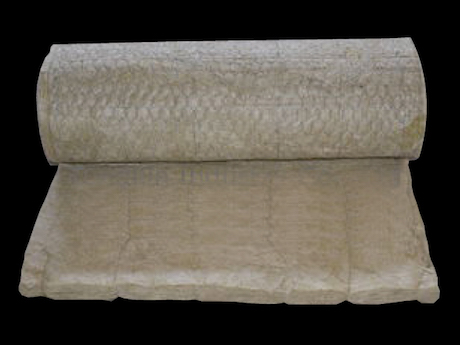
Rock wool
Isolform purchases this rock wool
in rolls, and processes it by cutting it and bonding it to
suitable materials. The rock wool is obtained from diabase
igneous rock, basalt rock and dolomite rock with added
adhesives. In addition to being a natural material with
excellent thermal insulation properties, rock wool is also a
good sound proofing material. Rock wool does not absorb water or
humidity, and responds extremely well to fire: it does not
contribute to the development or the propagation of fire. |
|
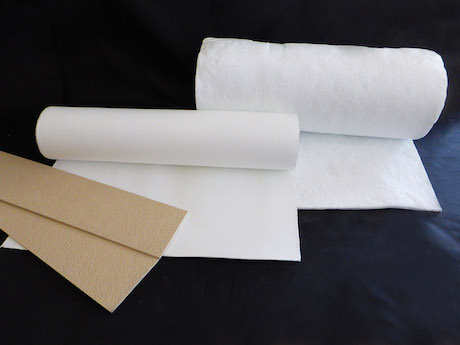
Ceramic fibres
Isolform purchases ceramic fibre
in rolls, and processes it by cutting it and bonding it to
suitable materials. Ceramic fibre is a leading-edge technology
in the sector of insulating and refractory materials.
The main characteristics are extreme lightness, very low
coefficient of heat conductivity, limited heat absorption and
total insensitivity to thermal shock.
Fields of application: filling and stuffing for high
temperatures, insulating gaskets, insulation of twisted volumes,
boiler combustion chambers, special oven covering components,
thermal insulation for ladle covers, coating of industrial ovens
(roofs and walls), fire doors. |
| |
|
|
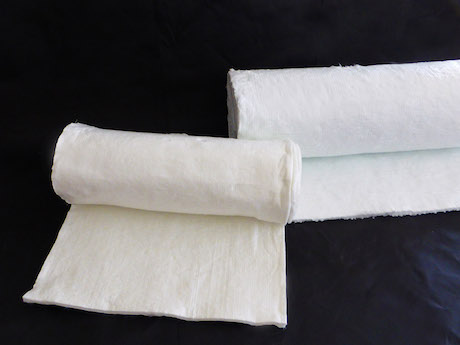
Glass fibre needled felt and padding
Isolform purchases these felts in roll, and processes
them by cutting them and bonding them to suitable materials.
These materials are made of non-organic "E" glass fibre, cut and
thermally stable, in compliance with DIN 1259.
Felted materials have good textile properties, excellent
resistance and mechanical stability.
They are soft, bulky, elastic, easy to perforate, cut and
handle. They can withstand operating temperatures up to
550°C/600°C.
They are suited to many different applications: Nautical and
shipbuilding, motorcycling and automotive sector, industrial
thermal and acoustic insulation. |
|
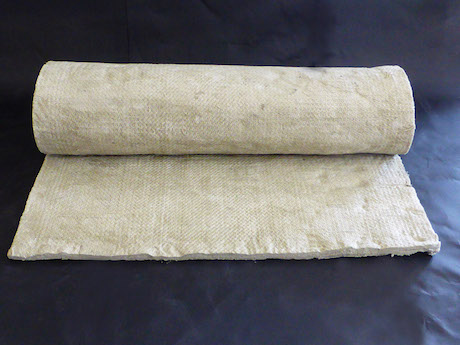
Rock wool needled felt and padding
Isolform purchases these felts in roll, and processes
them by cutting them and bonding them to suitable materials.
These products consists of long rock wool fibres, braided on
both sides, resulting in a compact felt. These products feature
stable dimensions and high heat resistance. They do not contain
adhesive resins, and can be used for sound and heat insulation
in the electrical appliance sector, thanks to their high
resistance to high temperatures and to being non-combustible.
They are particularly suitable for reaching or exceeding Class A
energy standards in the insulation of traditional or ventilated
electric or gas ovens. |
| |
|
|
|

